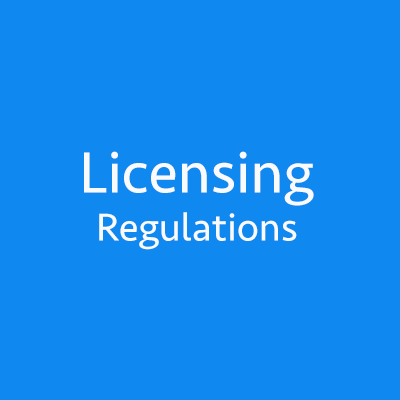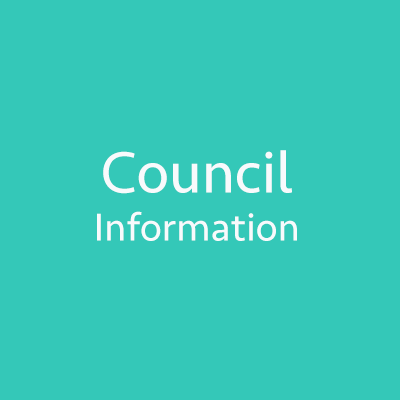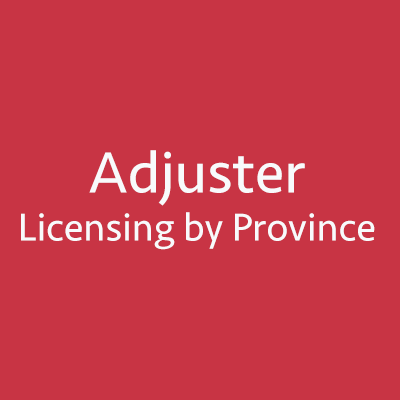Welcome to the ILScorp Resource Center!
We hope that you take advantage of some of the resources and services.Licensing Regulations
Canadian Insurance Continuing Education Requirements and Record Keeping
The following information is to be used as guidance to help you ensure you meet your professional requirements and obligations. For more information or for help with specific questions, contact your provincial or territorial insurance council.
B.C. Requirements
The exception to this is Travel Agency Employees/Salespersons who must complete their CE credits based on the calendar year (January-December).
| Licence Class | Number of Credits Required |
| Life and/or Accident & Sickness Insurance Agents | 15 credits |
| General Insurance Agents and Salespersons | 8 credits |
| Insurance Adjusters | 8 credits |
| Travel Agency Employees/Salespersons | 2 credits |
| Motor Vehicle Dealer’s Licensed Representative | 1 credit |
- You can carry over up to one year’s worth of CE credits to the next licence period.
- CE credits for a course can only be used once towards your CE requirements every three licence periods, unless the course content has substantially changed to warrant retaking the course.
- There is no maximum amount of course credits that can be claimed, and no daily credit maximum.
Canadian non-resident licensees whose home jurisdiction HAS mandatory continuing education requirements, are meeting the standards of their home jurisdiction and whose licence is in good standing are not required to meet Insurance Council of BC CE requirements.
Non-resident licensees whose home jurisdiction does NOT have mandatory continuing education requirements, are required to meet the Insurance Council of BC CE requirements. Licensees whose home jurisdiction is outside of Canada are also required to meet insurance Council of BC CE requirements.
Alberta Requirements
- General insurance – July 1 to June 30 annually – 15 CE credits
- Adjusters – July 1 to June 30 annually – 15 CE credits
- Life and Accident and Sickness – July 1 to June 30 annually – 15 CE credits
Agents, brokers and adjusters in Alberta must maintain their continuing education certificates for three years after the expiry of the licensing period in which the credits were earned. The Alberta Insurance Council may conduct random audits and these audits will only extend back three years.
Alberta allows for a carry-over of 7.5 hours/credits per year, per insurance class.
All licensees will be required to earn 15 hours of credits per certificate (with a carry-over of 7.5 hours per year allowed.) When renewing his or her license, the licensee must declare that he or she has obtained the required number of hours. The Alberta Insurance Council may conduct random audits.
Resource link: http://www.abcouncil.ab.ca/ongoing-education-requirements/
Saskatchewan Requirements
- General insurance – Annually, based on individual licensing date – 8 or 12 CE credits, depending on experience (see below for more information)
- Adjusters – Annually, based on individual licensing date – 8 CE credits
- Life and Accident and Sickness – Annually, based on individual licensing date – 15 CE credits
All classes of licensees must file an annual report that details the continuing education courses they have attended within the reporting year. Certificates and records must be kept as the Council may conduct an audit.
General insurance licensees must earn 12 credit hours per reporting year. Licensees with at least 25 years of continuous experience in the general insurance industry must earn eight credit hours per reporting year. Licensees who hold one of the following designations must earn eight credit hours per reporting period:
- A.I.I.C. (Associate of the Insurance Institute of Canada)
- F.I.I.C. (Fellow of the Insurance Institute of Canada)
- C.A.I.B. (Canadian Accredited Insurance Broker)
- C.C.I.B. (Canadian Certified Insurance Broker)
- C.P.C.U. (Chartered Property and Casualty Underwriter)
- CRM (Certificate in Risk Management)
- FRM (Fellow in Risk Management)
- CIP (Chartered Insurance Professional of the Insurance Institute of Canada)
- FCIP (Fellow Chartered Insurance Professional of the Insurance Institute of
- Canada)
No carryover of credits is permitted.
Insurance adjusters must earn eight credit hours per reporting period. Carryover of excess credits is not permitted.
Life and/or Accident and Sickness licensees must earn a minimum of 15 continuing education credit hours every year. A maximum of 8 credit hours will be allowed in one calendar day.
Only courses that provide technical education are considered to qualify as continuing education including courses that directly relate to:
(a) Life or accident and sickness insurance products; Compliance with insurance legislation and requirements such as Council’s Code of Conduct, Act and bylaws made pursuant to that Act, privacy legislation and anti-money laundering and anti-terrorist financing legislation; Ethics; Errors and Omissions,
(b) Financial planning provided that:
(i) a minimum of ten of the fifteen hours required per year is related to life or accident and sickness insurance; and
(ii) a maximum of five of the fifteen hours required per year is related to non-insurance sectors such as securities and mutual funds;
Carryover of excess credits is not permitted.
Reference link: https://www.skcouncil.sk.ca/
Manitoba Requirements
- General insurance – June 1 to May 31 annually – 8 CE credits
- Adjusters – July 1 to June 30 annually – 8 CE credits
- Life and Accident and Sickness – from June 1 to May 31 annually – 15 CE credits
Licensees must self-report their earned continuing education credits online through the Insurance Council of Manitoba’s Enhanced Online CE Module.
If Manitoba licence holders wish to repeat a CE course, they are able to allocate CE credits from this repeated course to their annual CE requirement as long as the course was completed over 2 years ago (the start of the 3rd year). Previously, repetition of CE courses was not allowed for any time frame.
What Does This Mean?
The CE enhancement allows licence holders to refresh their knowledge in a particular course area. The repeat courses will be tracked in the ICM system, and will be allowable towards fulfilling the stakeholder’s annual CE requirement, as long as the course is taken within the time frame as noted above.
Continuing education requirements vary by license, as follows:
General insurance
- 8 credit hours accumulated from June 1 to May 31
- Maximum of 4 credit hours can be carried forward each year
Adjusters
- 8 credit hours accumulated from July 1 to June 30
- Maximum of 4 credit hours can be carried forward each year
Life and/or Accident & Sickness
- 15 credit hours accumulated from June 1 to May 31
- Carryover of excess credit hours is not permitted
Auto-only brokers
- 4 credit hours accumulated from June 1 to May 31
- Maximum of 2 credit hours can be carried forward each year
Reference link: http://www.icm.mb.ca/index.php?option=com_content&view=article&id=110&Itemid=58
Ontario Requirements
- General insurance – October 1 to September 30 annually – 8 or 10 CE credits, depending on experience and role (see below for more information)
- Adjusters – October 1 to September 30 annually – 8 CE credits
- Life and Accident and Sickness – Every two year period, depending on original licensing date (see below for more information) – 30 CE credits
- General (OTL) Insurance Agents are not required to complete CE credits
Note: For a General (OTL) Insurance Agent to maintain an active and valid licence, an agent must always be sponsored by a sponsoring insurance company.
Upon renewal, the licensee must self-declare that he or she has obtained the required amount of continuing education credits. The Registered Insurance Brokers of Ontario (RIBO) recommends that licensees keep continuing education certificated for five years as random spot checks for compliance is possible.
Continuing education requirements vary by license and experience, as follows:
Principal brokers and deputy principal brokers:
10 hours of continuing education credits accumulated between October 1 and September 30 subject to the following conditions:
- 1 hour minimum of RIBO Ethics CE
- 5 hours of RIBO Management CE
- NO Personal Skills CE permitted
- Carryover of 10 hours is permitted each year
All other licensed individuals:
8 hours of continuing education credits accumulated between October 1 and September 30 subject to the following conditions:
- 1 hour minimum of RIBO Ethics CE
- 3 hours of RIBO Technical CE
- Maximum of 2 hours Personal Skills
- Carryover of 8 hours is permitted each year however the minimum category requirements must be maintained.
Newly-licensed individuals:
- The continuing education program of 8 hours every year between October 1st and September 30th will begin the first October following registration.
- Newly-licensed individuals are exempted for the remainder of the license year that they were registered
Life insurance:
- 30 credit hours accumulated every two years
- For life insurance agents who obtained their licence prior to February 1, 1995, the two-year reporting period ends on January 31 of each odd-numbered reporting year
- For agents who obtained their license on or after February 1, 1995, the reporting period is measured from the date the licence was issued
- Carryover of excess credit hours is not permitted
Reference link: http://www.ribo.com/index.php?option=com_content&view=article&id=55&Itemid=188
Quebec Requirements
- ChAD / Damage insurance – Licensees must complete 20 hours (PDUs) of training per two-year compliance period. The current reference period (2022 – 2023) is extended to March 31, 2024. It has an exceptional duration of 27 months.
- CSF / Life insurance and financial planning – Every two years from December 1 to November 30 in odd-number years – 30 PDUs
CSF – Chambre de la sécurité financière
The Regulation of the Chambre de la sécurité financière (CSF) mandates that Québec life insurance agents and financial planners earn 30 professional development units (PDUs) in the following categories:
- Mutual funds;
- Scholarship plans;
- Insurance of persons;
- Group insurance of persons.
Licensees must earn:
- 10 PDUs in general subjects
- 10 PDUs in compliance with standards, ethics and professional practice
- 10 PDUs in topics specific to the discipline or registration category in which they are authorized to do business
CSF MANDATORY COURSE ON COMPLIANCE Every other reference period, or every 4 years, all members of the Chambre must obtain at least 3 Compliance PDUs by following a training activity that was built by or offered in partnership with the CSF. This mandatory course is only offered through CSF, ILScorp is not authorized to offer this course. The 3 PDUs are counted as part of the amount that is usually requested of representatives. The PDUs may only be granted once during the 4-year period during which the course is mandatory.
During a reference period, PDUs accumulated in excess of the number required in a specific category or in compliance will be credited to general subjects. It is important for representatives to check that the training activities completed are recognized by CSF and that these activities are entered in their PDU record file the latest on the 30th of November of an odd year. Representatives must keep proof of attendance, exam certificates or test results from continuing education/professional development training for 24 months following the end of the reference period.
CSF PDUs earned for taking the same training. Courses/activities can be repeated as long as they are not reported in the same reference period.
ChAD
Chambre de l’assurance de dommages (ChAD): Licensees must complete 20 hours (PDUs) of training per two-year compliance period. The current reference period (2022-2023) is extended to March 31, 2024. It has an exceptional duration of 27 months.
As of April 1, 2024, reference periods will begin on April 1 in an even-numbered year rather than January 1 and are to last 24 months (for example, the following reference period will run from April 1, 2024, to March 31, 2026).
Licensees must earn 20 PDUs from the following categories:
- Compliance (A minimum of 3 PDUs must be completed in each compliance period)
- Administration
- Insurance techniques
- Law and legislation
- Professional development (A maximum of 5 PDUs can be completed in each compliance period)
Important Change: 2 PDUs for a training activity developed by the ChADBeginning with the 2016-2017 reference period, representatives will be obliged to take a course developed by the ChAD worth 2 professional development units (PDUs) dealing with either compliance with ethical or professional practice standards or with the evolution of the legal rules governing the sector of activity covered by the representative’s certificate. This new training will be offered at the ChAD’s online training site, ÉduChAD, and the PDUs earned will count towards the 20 mandatory PDUs representatives must earn during each reference period.
Limit on the number of PDUs earned for taking the same training
Since February 19, 2014, members may earn PDUs for taking the same training a maximum of two times, as long as the training is taken during two different reference periods. Consequently, a member who has already earned PDUs twice for the same training will not earn any further PDUs if he or she takes this training once again.
Reference links: http://www.chambresf.com/en/members-continuing-education/continuing-education/ and http://www.chad.ca/fr/membres/formation-continue
Requirements in Other Jurisdictions
There are currently no compulsory continuing education requirements in New Brunswick, Nova Scotia, Prince Edward Island, Newfoundland and Labrador, Yukon, Northwest Territories or Nunavut.
Be sure to check in with your provincial or territorial insurance council to ensure your licensing requirements are up-to-date.
Council Information
British Columbia
Insurance Council of British Columbia
300-1040 W Georgia, P.O. Box 7
Vancouver, BC, V6E 4H1
Telephone: 604-688-0321
Saskatchewan
Insurance Council of Saskatchewan
310-2631 28th Avenue
Regina, SK, S4S 6×3
Telephone: 306-347-0862
E-mail: ernie.gaschler@ibas.sk.ca
Ontario
Ontario
FSRA
Financial Services Regulatory Authority of Ontario
25 Sheppard Avenue West, Suite 100
Toronto, ON
M2N 6S6
Telephone: 416-250-7250
Toll free: 1-800-668-0128
Email: contactcentre@fsrao.ca
https://www.fsrao.ca/
(Property/casualty insurance broker licensing)
Registered Insurance Brokers of Ontario
1200-401 Bay St., Box 45
Toronto, ON, M5H 2Y4
Telephone: 41 6-365-1 900; toll-free: 800-265-3097
Web site: www.ribo.com
New Brunswick
Insurance Branch, Dept. of Justice
175-670 King St., Centennial Building, PO. Box 6000
Fredericton, NB, E3B 5H1
Telephone: 506-453-2512/453-2541
Prince Edward Island
Dept. of Community Services & Office of the Attorney General
95 Rochford St., P.O. Box 2000
Charlottetown, PE, C1A 7N8
Telephone: 902-368-4564
E-mail: rbradley@gov.pe.ca
Web site: www.gov.pe.ca
Northwest Territories and Nunavut
Dept. of Finance, Treasury Division, Government of the Northwest Territories
4922-48 St., 3rd Floor, YK Centre, PO. Box 1320
Yellowknife, NWT, X1A 2L9
Telephone: 867-873-7308
E-mail: ddoak@fin.gov.nt.ca
Web site: www.fin.gov.nt.ca
Alberta
Alberta Insurance Council
Calgary
Suite 500
222-58th Avenue S.W.
Calgary, Alberta T2H 2S3
Edmonton
Suite 600 Bell Tower
10104 – 103 Avenue
Edmonton, Alberta T5J 0H8
Manitoba
Insurance Council of Manitoba
466-167 Lombard Avenue
Winnipeg, MB, R3B OT6
Telephone: 204-988-6800
Québec
Autorité des marchés financiers
Place de la Cité, Tour Cominar
2640 boulevard Laurier, bureau 400
Sainte-Foy, QC G1V 5C1
Téléphone: 418-525-0337; sans frais: 877-525-0337
E-mail: renseignements-consommateur@lautorite.qc.ca
Web site: www.lautorite.qc.ca
Chambre de l’assurance de dommages
500, rue Sherbrooke Ouest, 7e étage
Montréal, QC, H3A 3C6
Téléphone: 514-842-2591; sans frais: 800-361-7288
E-mail: info@chad.qc.ca
Web site: www.chad.qc.ca
Nova Scotia
Dept. of Environment and Labour, Financial Institutions Division
5151 Terminal Road, 7th Floor, Halifax, NS, B3J 1Al
(mailing address: PO. Box 2271, B3J 3C8)
Telephone: 902-424-6331
E-mail: fininst@gov.ns.ca
Web site: www.gov.ns.ca/enla
Newfoundland and Labrador
Dept. of Government Services and Lands
Confederation Building, 2nd Floor, West Block,
Prince Philip Drive, P.O. Box 8700
St. John’s, NF, A1B 4J6
Telephone: 709-729-2571 /2594
E-mail: info@gov.nf.ca
Web site: www.gov.nf.ca
Yukon
Consumer Service J-6, Government of Yukon
PO. Box 2703
Whitehorse, YK, Y1A 2C6
Telephone: 867-667-5111
E-mail: consumer@gov.yk.ca
Study Tips
We want you to be successful!
Our students love online learning and how easy it has become for them to take a course, or prepare for an exam.
Online learning has many benefits, including the following:
- You are able to access your courses 24/7, anywhere in the world where there is an internet connection.
- You can study at your own pace! You are able to go back and review information as often as you like during your subscription period, and re-take any practice exams or quizzes.
- You can learn at your own convenience. Take courses when it is most convenient for YOU.
To help you with your online learning experience, ILScorp has put together a few ‘Study Tips’. Take a moment to review the tips, invest the time, and you will be successful!




